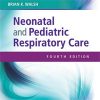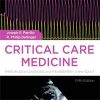Intravenous Fluid Therapy in Critically Ill Adults
nature.comDespite the administration of intravenous fluids to critically ill patients being a near-universal intervention, the available evidence base guiding their safe and appropriate use is scarce and derived mainly from academically driven, investigator-initiated trials.
These trials have proved that HES, the most frequently administered colloid solution, has an unacceptable safety profile and offers no benefits other than a clinically unimportant volume-sparing effect.
Several unresolved questions remain, including whether buffered solutions are definitely better than normal saline and whether critical care clinicians should adopt a restrictive approach to fluid administration, either in general or in selected subgroups of patients.
Finally, whether fluid resuscitation approaches should be different in resource-poor settings (where the majority of the world’s population lives and where advanced organ support might not be available) remains to be addressed.

















